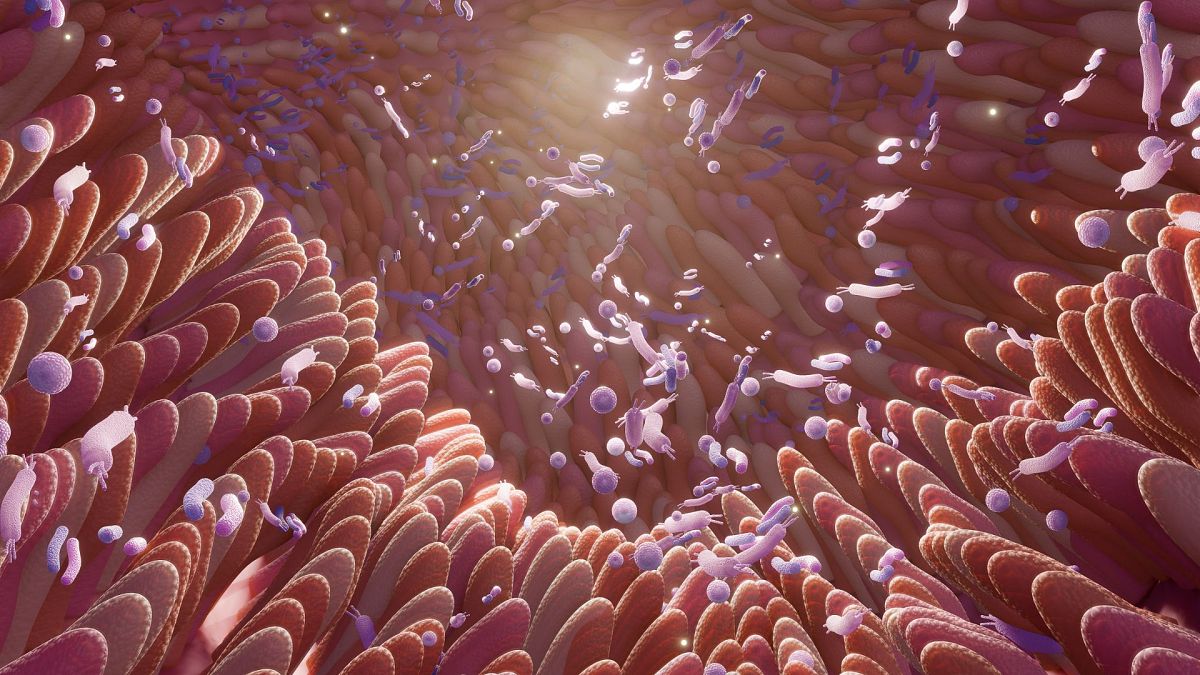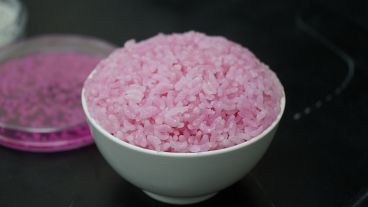An unbalanced gut microbiome was found to be associated with four common childhood allergies - eczema, asthma, food allergies and hay fever.
Scientists may have identified the source of the most common childhood allergies, which include eczema, asthma, food allergies and hay fever.
Researchers reveal in a new study how they may all be linked to the gut microbiome - the community of microorganisms such as bacteria, fungi, and viruses, that live in the digestive system.
Published in the journal Nature Communications, the study’s findings could lead to methods of predicting whether a child will develop allergies, and could also lead to ways to prevent them from developing at all, the researchers say.
Scientists at the University of British Columbia and BC Children’s Hospital in Canada found gut microbiome features and early life influences were associated with the development of these four common allergies.
While the allergies have their own unique symptoms, the researchers wanted to see whether they had a common origin linked to the gut microbiome of infants.
Dr Charisse Petersen, a co-senior author on the paper, said that while the allergies are technically different diagnoses, at a cellular level they “actually have a lot in common”.
The researchers looked at clinical assessments from 1,115 children whose data was tracked from birth until they were five years old. Around half of them had no evidence of allergies at any time, but 592 were diagnosed with one or more allergic disorders by a doctor.
Unbalanced gut microbiome
Studying stool samples collected at clinical visits at three months and then at one year old, they found a bacterial signature associated with the children who developed any of the allergies by the time they turned five.
The bacterial signature is a hallmark of an unbalanced gut microbiome, which is likely to result in a compromised intestinal lining and an elevated inflammatory response within the gut.
“Typically, our bodies tolerate the millions of bacteria living in our guts because they do so many good things for our health. Some of the ways we tolerate them are by keeping a strong barrier between them and our immune cells and by limiting inflammatory signals that would call those immune cells into action,” said Courtney Hoskinson, a PhD candidate at UBC and first author on the paper.
“We found a common breakdown in these mechanisms in babies prior to the development of allergies”.
What causes this imbalance can be attributed to a number of factors, including diet, how the infant is born, where they live, and their exposure to medicines like antibiotics. Antibiotics may destroy sensitive bacteria, while breastfeeding is known to replenish and provide necessary food for bacteria in the infant’s gut.
“There are a lot of potential insights from this robust analysis,” said Dr Stuart Turvey, professor in the department of paediatrics at UBC and co-senior author on the study.
“From these data we can see that factors such as antibiotic usage in the first year of life are more likely to result in later allergic disorders, while breastfeeding for the first six months is protective. This was universal to all the allergic disorders we studied”.
The researchers hope to use the findings to find treatments that correct an imbalanced gut microbiome.
Hundreds of millions of children around the world suffer from allergies, which can have major health and psychological implications.
Other than the obvious health risks, charity Allergy UK explains that allergies can affect the wellbeing of children in a number of other ways, including fear of a potential allergic reaction, worries about using adrenaline auto-injectors, food aversion, and sleep deprivation.



